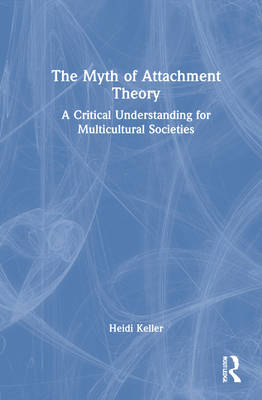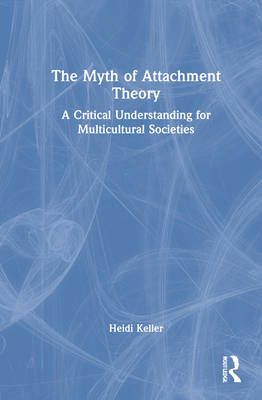
- Retrait gratuit dans votre magasin Club
- 7.000.000 titres dans notre catalogue
- Payer en toute sécurité
- Toujours un magasin près de chez vous
- Retrait gratuit dans votre magasin Club
- 7.000.0000 titres dans notre catalogue
- Payer en toute sécurité
- Toujours un magasin près de chez vous
The Myth of Attachment Theory
A Critical Understanding for Multicultural Societies
Heidi KellerDescription
The Myth of Attachment Theory confronts the uncritical acceptance of attachment theory - challenging its scientific basis and questioning the relevance in our modern, superdiverse and multicultural society - and exploring the central concern of how children, and their way of forming relationships, differ from each other.
In this book, Heidi Keller examines diverse multicultural societies, proposing that a single doctrine cannot best serve all children and families. Drawing on cultural, psychological and anthropological research, this challenging volume respects cultural diversity as the human condition and demonstrates how the wide heterogeneity of children's worlds must be taken seriously to avoid painful or unethical consequences that might result from the application of attachment theory in different fields. The book explores attachment theory as a scientific construct, deals with attachment theory as the foundation of early education, specifies the dimensions that need to be considered for a culturally conscious approach and, finally, approaches ethical problems which result from the universality claim of attachment theory in different areas. This book employs multiple and mixed methods, while also going beyond critical analysis of theory to offer insight into the implications of the unquestioning acceptance of this theory in such areas as childhood interventions, diagnosis of attachment security, international intervention programs and educational settings.
This volume will be a crucial read for scholars and researchers in developmental, educational and clinical psychology, as well as educators, teachers-in-training and other professionals working with children and their families.
Spécifications
Parties prenantes
- Auteur(s) :
- Editeur:
Contenu
- Nombre de pages :
- 172
- Langue:
- Anglais
Caractéristiques
- EAN:
- 9780367764753
- Date de parution :
- 15-12-21
- Format:
- Livre relié
- Format numérique:
- Genaaid
- Dimensions :
- 156 mm x 233 mm
- Poids :
- 839 g

Les avis
Nous publions uniquement les avis qui respectent les conditions requises. Consultez nos conditions pour les avis.






